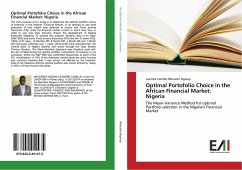The overwhelming focus on external debt in the public debt discourse is to state least delusionary, as it is in no way superior to domestic debt. Debates rage on the suitability of domestic debt to finance deficits. At one end of the theoretical squabble is the argument that domestic debt crowds out the private sector and utilized inefficiently by government, while at the other is the family analogy which suggests that domestic debt develops financial market and the economy at large. Therefore, given the magnitude of domestic debts of Nigeria (which is even higher than external debt, more susceptible to defaults and easily inflated away), weak institutional framework and economic fragility culminating in recession, this book analytically considers the implication of such (momentous domestic) debt on liquidity in Nigeria and by extension developing countries.
Bitte wählen Sie Ihr Anliegen aus.
Rechnungen
Retourenschein anfordern
Bestellstatus
Storno








